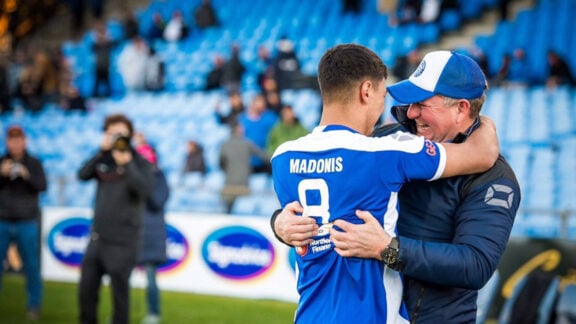“Herakles is a good unifying figure because he’s a ‘pan-Hellenic hero’ not just important in one city but everywhere,” said Amy Smith, Professor of Classical Archaeology and curator of the Ure Museum of Greek Archaeology at the UK’s University of Reading in her own ‘pan-Atlantic’ accent. She is a Briton with an American accent, a result of having studied in the United States.
“And that’s interesting in terms of politics; how they use and don’t use him depending on how things are going at the time, and how he might count as more from other places.”
Smith says Herakles is a stranger, a de-local depending on how you look at him. It’s hard to pin him down mythologically in terms of where he came from because he doesn’t really belong from the very beginning. No hero belongs in a sense; they’re halfway between divine and human, and some of Herakles’ interesting stories take him to strange lands where he does a little bit of table turning. But the Greeks are going to show him as the one who belongs and the strangers as the Other.
“If you think about the stories, he’s actually the ‘weirdo’, he’s the one in a funny place,” she said.
“One of the most extreme versions is when he goes to Egypt and so the Greeks paint the Egyptians as being different, and Herakles is more ‘normal’ to make the point that there’s a distinction between these two people.”
This is why Herakles is ‘the man’ or the ‘antisocial hero’, because he’s a visitor in a place were people do things differently. Smith explains this is best exemplified in a story where Herakles was received by King Busiris who practised xenoktonia – a ritual killing or sacrificing of strangers to appease the gods. But anyone who knows their Greek mythology knows that killing Herakles to appease Zeus is strange – after all, Herakles is the son of Zeus.
“But that’s the story as it’s told and some of the Greeks who reported that to us, even Heroditus writing in 450 BCE doesn’t even believe it,” Smith said.
But the best story, and the most fundamental, to know about The Man is The 12 Labours, where Herakles finds himself ‘sentenced’ to perform 12 labours after Hera cast upon him temporary insanity driving him to murder his wife and children. After he realised what he’d done, he prayed to Apollo who then sentenced him to these labours. For Smith, it gives a sense of the width and breadth of Greece and the issues that not only Herakles dealt with but also that the Greeks dealt with.
“It’s a story that can be read on many levels, and deals with issues on kingship and mortality because going through these labours is a pursuit of something he has to prove himself before he gets up to Mount Olympus,” Smith said.
“I think these stories try to represent the story of mankind,” Smith says. “Anything less than that would not be doing it justice. These aren’t stories that were written down by one person and at one time. Myths are the ideas, the attitudes, even the values behind the stories.”
“Go back to the ancient Greek word mythos (μύθος) and its plural mythoi (μύθοh). You can’t take mythos as a singular, these are mythoi, these are stories all wrapped up in particular packages by particular authors or artists at certain times but I think it’s really important to get through to people that the underlying ideas evoked through stories is no less than how the ancient Greeks felt,” Smith says.
Although we might go into the issue of which ancient Greeks, Smith says it’s all ancient Greeks because these were stories that they were all trading and sharing that unified them as a cultural group of people even though they both respectfully and disrespectfully had their separate governments and their different city states.
The Athenians would talk to the Corinthians from time to time, although they tended to be on opposite sides, but they had similar stories about Gods and heroes, similar ways of worshipping, and talking about these stories, so the myth is no less a way of how the ancient Greeks felt. The great breadth of the myths going on through time give us a sense of how there’s no single feeling, there’s no single approach, there’s no single idea – it’s just a whole body, a whole range of stories that reflect the different ideas that the Greeks had.
“And one thing that Herakles brings out loud and clear with these stories about him being a stranger in strange lands is how the Greeks would have seen themselves if they were in Herakles’s shoes going to these places,” Smith says.
But should we care about Herakles? We see him on TV, although more commonly referred to from a Roman context (Hercules, but this is the same person, with the same stories), we see his ‘Disneyfication’ but the truth is whether you are a purist or a classicist, these stories provide us with a pool of ideas from which everyone can extract.
“I have a friend who’s an expert with the medical uses of copper. He delved into a body of European myths to find little snippets of information on how copper could be used,” Smith says.”There are all sorts of disciplines that could use the stories in a different way if they just listened to the stories. I think it’s opening up their worldview.”
Professor Smith will indulge audiences about Herakles at 6.00 pm on 13 December at the City Library, 253 Flinders Ln, Melbourne, VIC. This event is free, but tickets must be booked via Eventbrite.








